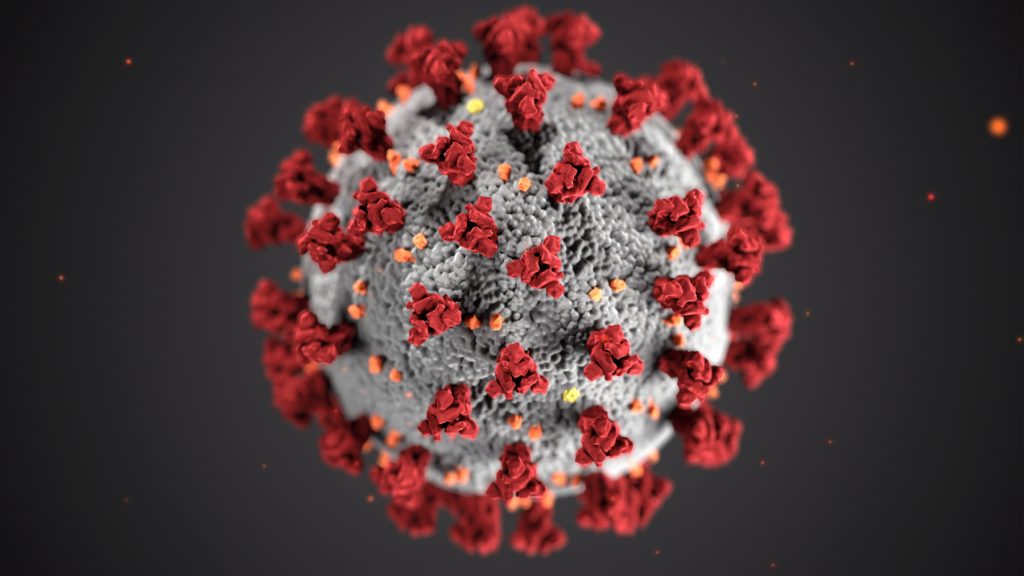
By: Dr. Thaddeus Walczak, University of Minnesota
It’s been more than two years since the viral illness that came to be known as COVID-19 was first reported. The subsequent COVID pandemic has impacted everyone, and that includes people with epilepsy. It’s no exaggeration to say that all of us were hoping the pandemic would be behind us already and that life would return to normal.
Unfortunately, the emergence of the omicron variant confirms the COVID pandemic has not yet run its course. Nonetheless, a lot of experience has been gained, new information is available, and many of the questions raised in the early days of the pandemic have some tentative answers.
The impact of COVID on people with epilepsy was a big topic of discussion at the American Epilepsy Society (AES) Annual Meeting in Chicago in early December. Below, we review some of the answers that are emerging to these questions. As always, our understanding continues to evolve and the answers are likely to change over time.
Are people with epilepsy more likely to get COVID?
There is not as much information on this as we would like. Several studies following 100 to 300 people with epilepsy suggest that people with epilepsy are no more likely to get COVID than anyone else. Epilepsy is not included in the most recent Centers of Disease Control “List of Underlying Medical Conditions Associated with Higher risk for COVID.” However, some people with epilepsy have other risk factors for COVID that should be kept in mind. For example, cancer and strokes are associated with epilepsy, and cancer and strokes also increase risk of getting COVID. In these cases, it is the underlying condition that is increasing the risk for getting COVID rather than epilepsy.
Have people with epilepsy experienced seizures more often during the pandemic?
There is more information here. Several studies from the United States, Great Britain, and Italy have shown that seizure numbers and severity have remained stable in 75% of people with epilepsy, gotten worse in 9 to 17%, and have actually improved in the remainder. People reporting that seizures worsened during the pandemic reported more stress, more disrupted sleep, more frequent symptoms of anxiety and depression, and more severe epilepsy prior to the pandemic compared to people who reported that seizures did not worsen. The finding that seizures sometimes actually improved during the pandemic led some to speculate that reduction of work-related stress associated with working from home may benefit some people with epilepsy.
Does an actual COVID infection worsen seizures in people who already have seizures?
There’s not much definitive information yet. Some indirect information suggests that worsening of seizures in people with epilepsy who develop COVID is less of a concern than we first thought, at least for mild COVID that requires hospitalization or ICU care. For example, people reporting worsening of seizures during the time of the COVID pandemic did not report actual COVID infection more often than people who did not report worsening of seizures. Because mild COVID is unfortunately relatively common, all practicing neurologists have cared for many patients with epilepsy who have become infected with COVID. Informal discussions suggest that worsening of seizures during mild COVID is infrequent if the epilepsy is reasonably controlled to begin with.
Nonetheless, COVID infection must be taken seriously. People with epilepsy experiencing an infection must take medications regularly, maintain fluid intake, make sure that oxygenation is adequate, and control fevers. Having an up-to-date plan to address seizure exacerbations is also important.
Do COVID vaccinations worsen seizures?
Available information suggests they do not. A study reported at the AES meetings carefully reviewed seizure increases following COVID vaccinations in people with Dravet Syndrome. This is a very severe epilepsy in which seizures are especially likely to occur following fevers. Seizures do not appear to worsen or occur more often following vaccination than at other times.
This author has seen about 800 different people with epilepsy since the beginning of the pandemic and has regularly asked whether they are vaccinated and what their experience was. I have encountered four people who reported seizures within 24 hours of their first COVID vaccine. All four patients had their second vaccination and none reported seizures after the second vaccination. Overall, COVID vaccination does not appear to worsen seizures.
So how are person with epilepsy to live their lives during this persisting pandemic?
What we have learned is reassuring and tells us we should follow the common-sense recommendations that were advocated earlier in the pandemic. Get vaccinated and get your booster shots if eligible. Follow local recommendations regarding masking, especially indoors in situations in which social distancing is not possible.
It’s tempting to put off follow-up medical visits when life gets busy with all the additional challenges associated with the pandemic, but this is not wise. Getting and keeping your seizures under the best possible control may prevent seizures from worsening if you happen to get infected. Take medications regularly, maintain regular sleep and dietary habits, and address stress, anxiety, and depression to the extent possible. Daily stress reduction exercises such as progressive muscle relaxation, aromatherapy, or yoga may be useful.
Review your seizure rescue plan with your epilepsy practitioner and make sure the rescue medications you need are readily available. Keeping people with epilepsy out of emergency rooms and hospitals continues to be a major goal of epilepsy care.
What have we learned about telemedicine in epilepsy?
The rapid move to telemedicine during the pandemic was a major accomplishment for the American medical system. Nonetheless, the changes have not always been smooth and some two years out, the role of telemedicine continues to change.
Telemedicine has the major advantages of convenience and more frequent follow-up for the person with epilepsy. The ability to directly understand the person’s living situation, to follow up more often, and to more easily engage family members in the visit (when appropriate) is also helpful.
However, technology issues can sometimes get in the way. It’s important to start the visit in a setting with adequate Wi-Fi or other internet connection. Contact your provider’s office ahead of time to make sure that necessary apps are downloaded and settings correct. Please make sure that you’re in a private place for your visits. Carrying out a visit from your work cubicle does not allow a deep and honest conversation of your situation. Carrying out a visit from your car is not advised as connectivity is likely to be a problem, especially if a friend is driving and the car is moving.
Please have seizure diaries, medication bottles, and a list of questions ready ahead of time, just as you would for any other visit. The wider availability of telemedicine has led to a tendency to put off in-person visits indefinitely. This is probably not wise. Regular physical examinations continue to be important. Regular laboratory and other testing is sometimes needed and requires a direct in-person visit.
Telemedicine during the pandemic is a great example of how epilepsy care requires active participation and change for all members of the epilepsy community. The COVID pandemic continues to transform American medicine and the care of people with epilepsy. The information in this article may well be out of date in the next several months as we continue to learn more. However, the need for a team approach, and the need for informed and open communication among all members of the epilepsy community, has never been clearer.
Dr. Walczak is Professor and Clinical Director, Division of Epilepsy and EEG, in the Department of Neurology at the University of Minnesota. He is a member of the Professional Advisory Board of the Epilepsy Foundation of Minnesota
